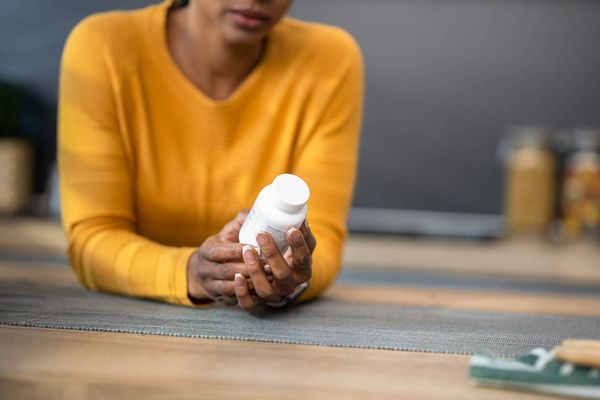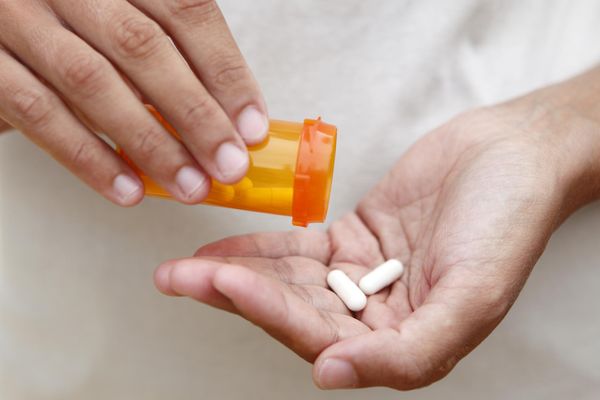Having to get any type of surgery, no matter how simple the procedure may seem, can be scary. The Covid-19 pandemic, with its new health risks and protocols to follow, makes it even more stressful for patients.
While the pandemic initially decreased the number of outpatient surgeries being performed, they are back to pre-pandemic levels, which had been on the rise even before then: In 1995, 13.4 million surgeries took place at hospital-owned centers and by 2018, there were 19.2 million.
It’s common to get an infection after having a procedure at a surgical center or hospital. That’s one of the reasons it’s important for patients to learn as much as possible to keep themselves safe before having a procedure done. With that in mind, HealthyWomen reached out to Dr. Dele Ogunseitan, a population health and disease prevention and public health professor at the University of California, to ask what questions people should ask their healthcare providers (HCPs) before having outpatient surgery.
“To some extent, every medical procedure has a personal dimension because we are all
individuals with unique characteristics,” Ogunseitan said in an email. “However, there are some fundamental practices that support the expertise of professionals, so that quality of care can be controlled. So, the most important thing is to pay close attention to the recommendations of healthcare providers in terms of how best to prepare for outpatient surgery.”
What do I need to do to prepare before I have outpatient surgery?
While each surgery is different, there are specific steps you can take to lower your risk of getting an infection, according to the Association for Professionals in Infection Control and Epidemiology. These include:
- Communicate with your healthcare team. Be open and honest about your health and medical history, including allergies. Make sure you have a clear understanding of the procedure you’re going to have and don’t be afraid to ask for more information if you need it.
- Learn about medications. Ask your HCP if you’re going to need to take an antibiotic after your procedure and if so, find out why and if you really need it. That’s because overuse of antibiotics can lead to getting an infection that’s hard to treat.
- Practice good hygiene. The best hygiene practices include bathing carefully with prescribed antiseptic soap and handwashing, which are both very important for reducing the possibility of infection before and after the surgical procedure. Sometimes surgeons also prescribe a nasal spray to kill bacteria before surgery. In addition, don’t shave the area where your incision will be and avoid using deodorant or lotion on the day of your surgery.
- Eat well: Focus on fruits and vegetables in the days before surgery. Avoid processed foods and alcohol.
- Get a good night’s sleep before surgery: A poor night’s sleep before surgery is associated with more pain after the procedure.
Am I in danger of developing an infection while I’m in the hospital or surgery center?
Surgical site infections (SSIs) — infections that develop at incision sites — are the most common infections that people develop after surgery. The risk, however, is relatively low: According to a 2014 study, only 3% of patients developed an SSI within 14 days and almost 5% developed one within 30 days of having outpatient surgery.
There are also other infections to be aware of, such as healthcare-associated infections, which are infections patients get in a healthcare setting and that may or may not be antibiotic-resistant.
Hospitals are aware of the risks of antibiotic-resistant healthcare-associated infections, Ogunseitan said. Healthcare providers should also be following the CDC’s best practices for handwashing, among other hygiene guidelines, which should reduce your chance of getting sick after your surgery.
You’re less likely to contract an infection during outpatient surgery than inpatient surgery, but the longer you stay in any healthcare facility, the greater risk you have of contracting an infection.
What can I do to reduce the risk of developing an infection?
Be proactive. Don’t be afraid to ask anyone who enters your room, whether in a healthcare facility or while recovering back at home, to wash their hands. Also, be aware of the CDC’s best practices for patient safety:
- Remind all visitors, including HCPs, to wash their hands when they enter your room.
- If HCPs are not wearing protective gear like gowns and gloves when they’re supposed to, request that they put those on to help prevent the spread of germs and infections.
- Allow hospital staff to clean your room.
- Understand that HCPs could ask that you be tested for a germ that is resistant to antibiotics, despite a lack of symptoms.
- Talk to your HCPs about any procedures or treatment you’ve gotten that haven’t taken place in the U.S.
- Make sure you’re following all the instructions your HCP gives you before your surgery, which could change depending on which procedure you’re having.
What are the signs/symptoms of an antimicrobial-resistant infection?
An antimicrobial-resistant (AMR) infection is one that cannot be easily treated by drugs. HCPs are the only ones who can determine whether a post-surgery infection is indeed an AMR-related infection. Your HCP then should follow CDC guidelines for treating AMR infections.
One of the first signs of any infection is a fever. That can be followed by symptoms including:
- Swollen lymph nodes
- Swelling or pus around the surgery site
- Persistent nausea or vomiting
- Confusion or lack of awareness (also called delirium)
- Pain
If you have any of these symptoms, contact your HCP right away or go to the hospital.
What should I do if I see something that worries me once I’m home?
Speak with your HCP about any concerns you have before leaving the healthcare facility. If you get home and feel unwell, call them.
Above all, if you feel yourself quickly getting worse, call 911 or ask a loved one to take you to the hospital.
“Some infections can progress very rapidly, and it is better to be cautious than to be sorry,” Ogunseitan said.
What information do I need from providers regarding post-surgery home care to prevent infections?
Before surgery ask your HCP:
- Whether you will need any special equipment when you get home
- When you can return to work
- When you can begin exercise or any other physical activities
- Whether there are any other restrictions you need to follow
In addition, follow all instructions provided by your HCP, including any special instructions about how to care for your surgical incision. Depending on the procedure, these could include:
- Always wash your hands and maintain good hygiene practices.
- Do not begin physical activities until your HCP says it’s OK.
- Make sure you have a clear understanding of how to care for your wound.
- Make sure anyone helping you clean or replace a bandage on your incision is following proper hygiene practices.
Ogunseitan emphasized that it’s your responsibility to follow these instructions, but if you’re unclear about what to do or think you’ve made a mistake, talk to your HCP to get help as soon as possible.
This resource was created with support from Pfizer Inc.







